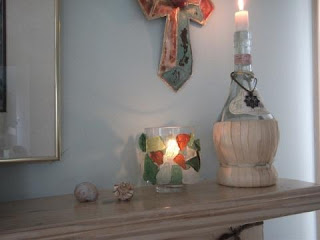Things I've found, read, thought of, or happened this past year that helped me, and I hope you:
We don't have to try to live each day to the fullest. Each day is full on its own. All we have to do is notice.
All you can control is you and all I can control is me; then let us be at peace.
Time speeds up and slows down, shortens and lengthens according to a formula we can't change. No hour feels exactly like any other hour. If time is the interval between two events, the interval is ever different. There is clock time and there is felt time. We can be at one with that; time has its own temperament.
I can measure my life by what is going on within me, rather than by a pre-pandemic lifestyle. What motivated me last year? What will my projects be this year? You too. What will our inner journeys be like in 2022?
We don't have to wait until we're too busy to say no. We can say no because we don't want to be too busy.
Our sadness can be a mild alarm signal, triggering more effort to deal with our challenges. Sadness can send us to our tool kit: a walk, anyone? Some time alone, or with friends? What action is needed? What change to be made? Welcome, sadness.
Find what you do that's so absorbing that you forget the world exists, then do it more often.
Beware of destination addiction. If happiness is always the next activity, the next outing, the next day--anywhere but here--it will never be where you are. It will never be now.
Make yourself a little world where you can be from time to time alone and perfectly at home.
Useful metaphor (though easier said than done): Do not let anyone rent space in your head unless they are a good tenant.
Virginia Woolf suffered from depression and died from it, yet she wrote,"Happiness is in the quiet, ordinary things. A table, a chair, a book . . . . And the petal falling from the rose, and the light flickering as we sit silent." We can look to those small things if we're depressed too.
A truth I've learned from experience: you can recover from loss, even a loss that squeezes your heart with iron fists. Pause and look for the bits of magic that happen each day.
Time spent caring for plants is meditation in motion. Wilderness is not a luxury but a necessity of our soul.
Every year I'd like to make my needs simpler.
When I need a guide, God is the best one I've found.
"I want to think again of Dangerous and Noble things. I want to be light and frolicsome. I want to be improbable, beautiful, and afraid of nothing as though I had wings." If Mary Oliver could say this when she was 68 years old, we too can cultivate our own unbounded spirit.
So many years ago Rachel Carson (1907-1964) wrote, "There is something infinitely healing in the repeated refrains of nature--the assurance that dawn comes after night, and spring after winter." This is still true.
Bell Hooks, whose death we are mourning, said, "Knowing how to be solitary is central to the art of loving. When we can be alone, we can be with others without using them as a means of escape." Such consideration this shows. And such appreciation of solitude.
Forgiving makes us feel free and light. Let's forgive those we can, even ourselves.






















